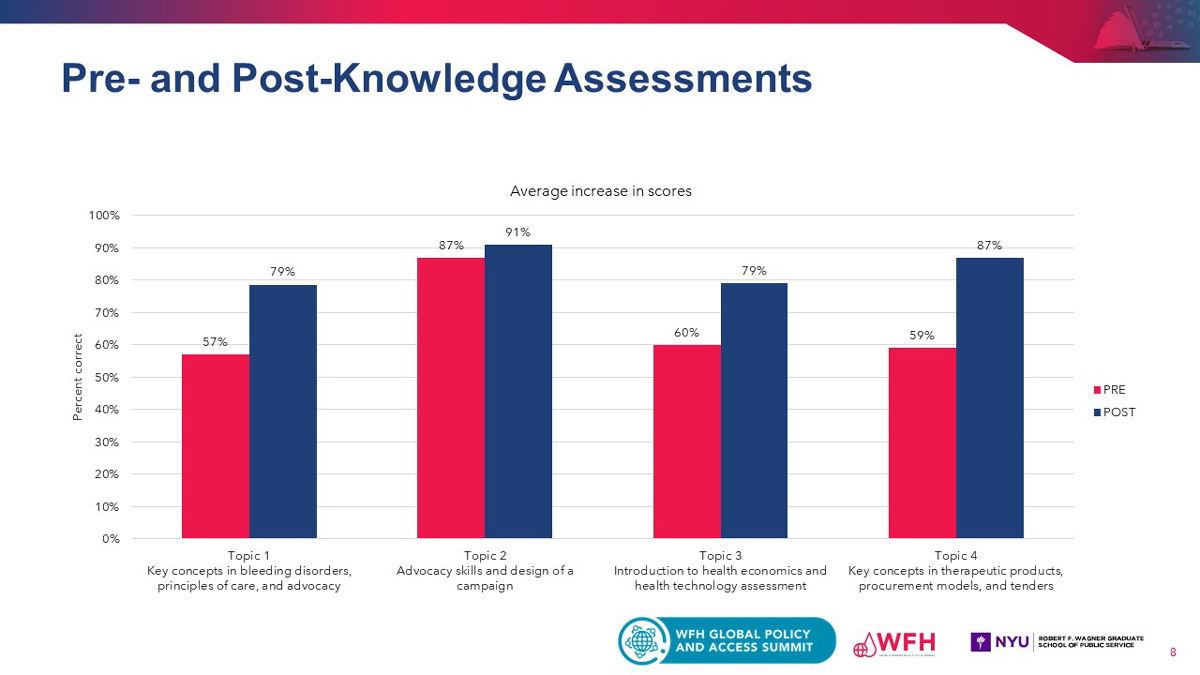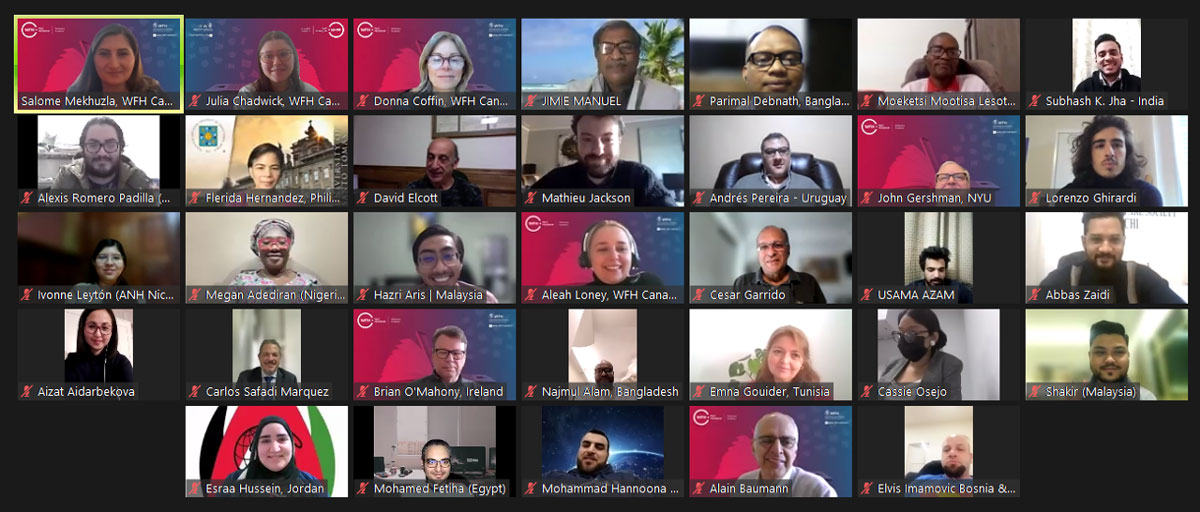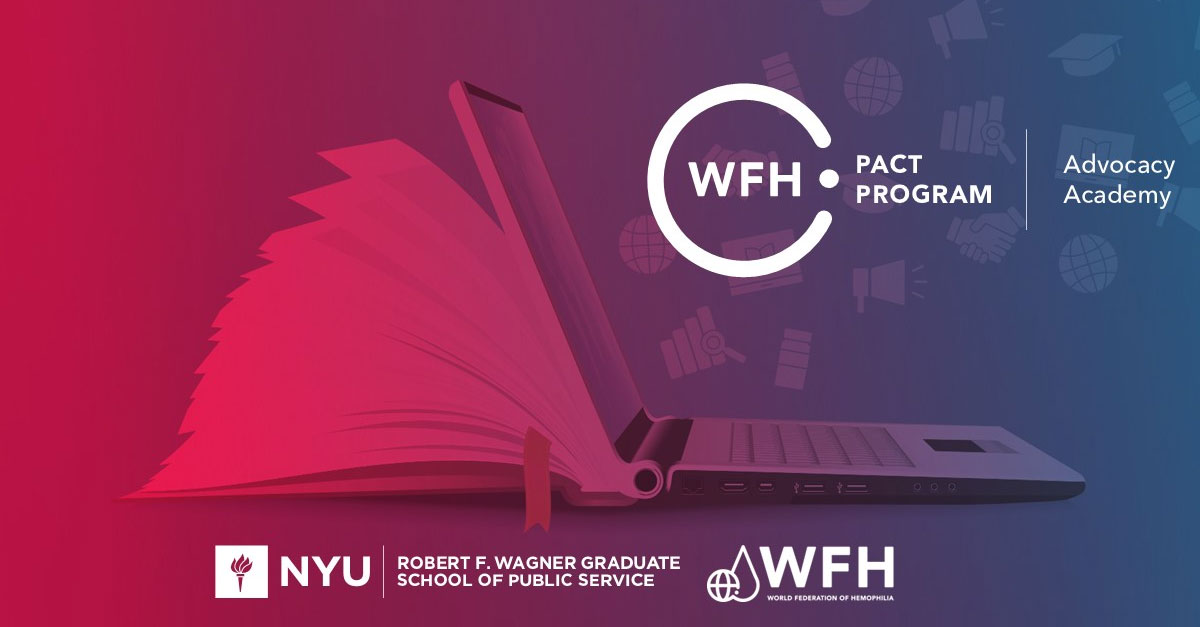Over a period of eight months, PACT Advocacy Academy participants completed four modules co-created by the WFH and New York University – Robert F. Wagner Graduate School of Public Service. The modules covered key concepts in bleeding disorders, principles of care, and advocacy; advocacy skills and campaign design; introduction to health economics and health technology assessments; and key concepts in therapeutic products, procurement models, and tenders. Participants also developed real-life advocacy campaigns through a series of practical assignments. The instructors and mentors, who included advocacy and bleeding disorders experts, trained and advised the students through the lens of advocating for safe and sustainable treatment and care—a key strategic objective of the WFH.

The feedback from participants was overwhelmingly positive, with the majority stating that their experience gave them the tools they needed to advocate more effectively in the real world. Juan Andrés Pereira de Souza from Uruguay shared with us that what he learned during his time in the PACT Advocacy Academy reinforced and expanded his knowledge of advocacy strategies, and gave him the skills to organize advocacy projects more effectively. Agnes Kisakye from Uganda said she felt that her experience helped her become more equipped to engage with stakeholders in policy and advocacy, and helped her gain a more comprehensive and patient-centered approach to program interventions.
I was happy to share my learnings from the PACT Advocacy Academy with the Hemophilia Philippines Foundation… my team will now put into practice the concepts and skills I have learned to advance our lobbying efforts with the Philippine Health Insurance Corporation (PhilHealth), local governments, and the National Institute of Health. The program helped me and my organization refocus and reorganize our initiatives for the Philippine hemophilia community.
—Flerida Hernandez from the Philippines
In 2023, the WFH will build on the successes of the program’s first year, notably by expanding to offer courses in three languages: English, French, and Spanish. The new cohort has already begun their instruction, and the enthusiasm among participants is high. During the orientation session in January, Cesar Garrido, WFH President, reminded the participants to always be strategic in their work, so that together, they can work towards our shared vision of Treatment for All.

To find out more about the WFH Path to Access to Care and Treatment (PACT) Program, please click here.
The PACT (Path to Access to Care and Treatment) Program is supported by funding from Roche, our visionary partner; CSL Behring, Pfizer and Sanofi Genzyme, our leadership partners; and Bayer, Biotest and Grifols, our collaborating partners.












